The BOSS (British Oil Security Syndicate) Payment Watch scheme is about to be massively improved as it will include drive-offs as well as no means of payments (NMoP). The digitally integrated drive-off and NMoP solution has been trialled successfully with two regional police forces and will now be rolled out across the UK.
According to the BOSS Forecourt Crime Index, forecourt crime is estimated to cost retailers more than £30m annually, with two-thirds of the crime resulting from drive-offs and the remainder coming from NMoP incidents.
BOSS policy and strategy manager, Bruce Nichol, says: "The information about all incidents can now be analysed giving retailers detailed real-time reports about forecourt crime which help them to manage their resources more effectively, reduce losses, increase recovery and, as a result, improve profitability."
Average recovery rate across the Payment Watch scheme is 80% but Nichol says a couple of forecourt groups that are ’stringently’ managed are seeing rates of 90%-plus. He is of the opinion that retailers have got to help themselves: "I believe that retailers need to take more responsibility to assist with crime prevention but that said we have a system that can benefit them massively."
Drive-offs are put into two main categories: the vast majority are intentional drive-offs where people filling up have their hoods up and their backs to the CCTV. Then there are the few cases where someone has three screaming kids in the car, they fill up, are distracted by the children and drive off, but Nichol says in reality these cases are very few and far between.
He says ’failure to pay’ is on the increase though. This is where a driver fills up, goes into the shop, uses the toilet, gets a coffee then goes back to his or her car without paying for the fuel.
"This is not always intentional, as such," explains Nichol.
"During trials of the new solution, we’ve found that a lot of individuals make their way to the door and once they think they’ve got away without paying, they keep on going."
The system’s new capabilities mean these other types of non-payment will be added to the Forecourt Crime Index in the next six-to-12 months. "This will definitely give us a truer picture of the whole forecourt crime problem," says Nichol.
He adds that since the trials, BOSS has had a number of enquiries from other police forces who are keen to get involved.
"Police come to us now for access to our data, particularly for VRNs. We are happy to pass these on as we are saving them time and money. But they are only really interested in the multiple offenders."
Nichol says people using false or cloned plates and stolen vehicles are a growing problem, as is the use of pay@pump systems to validate cloned credit cards: "These people, typically members of organised crime groups, will use pay@pump to put in £5 of fuel using a cloned card, which will draw no attention to them at all. But once that cloned card is validated in that machine, it can be used elsewhere for bigger purchases."
Meanwhile, the latest results for the BOSS Forecourt Crime Index have revealed that incidents of forecourt crime fell by 7.5% during the first quarter (Q1) of 2019.
During this period, the BOSS index fell to 142 (151: Q4 2018). The index was established at 100 in Q2 2015. During Q1 2019, the average number of incidents recorded per site was 10.1 (Q4 2018: 10.7) resulting in the average initial loss per site, before any BOSS Payment Watch recovery, falling to £484 in the quarter (Q4 2018: £560). The average fuel price in the quarter was 125.2 ppl, 4.5% lower than in the previous quarter (131.1ppl: Q4 2018), and the average initial loss per site in litres fell to 386 (428: Q4 2018).
It’s good news but Nichol concedes that these figures do fluctuate. They change as the fuel prices go up and down, and also with the seasons.
The Mars approach
Unmanned petrol stations arguably need even better security. Many use Metro Security’s MARS (metro analytic retail solution) system very effectively. The system allows forecourt operators to have ’virtually attended’ sites where they can see everything that’s happening and have complete control over it. If there’s a problem, emergency responders in the area are alerted and then go to the site. On a day-to-day operational basis, the system can, for example, tell a customer who has left his or her car door open, to close it. Also, if a younger driver has gone to fill up their vehicle, the system can ask for age verification.
The system is paying attention all the time, watching for any incidents that might need intervention. Another example of its use is with the deployment of invisible trip wires across the ground so as soon as someone walks over them, the system is alerted. If it’s a person without a vehicle, the system asks them to move off the site and says emergency services will be called if they don’t. This might not sound particularly useful but one forecourt operator using the MARS system was near a night club and actually had fights break out on its site. These people were told to move off or the police would be called.
The system can even shut a site down, in the case of a fire, for example. It will shut it all down remotely, talking to each pump individually. And if there’s a spillage, emergency responders are called and will attend.
Loss prevention
The MARS software analytics-based system, which recently won a Queen’s Award for Enterprise, combines significant loss prevention capabilities with a range of complementary retail management, operational, marketing and staff training tools. The system has helped Sports Direct (along with its related acquired businesses, including House of Frazer and Evans Cycles) to reduce shrinkage across all of its stores by a significant 70%, while also cutting audit costs by 65%. And it is now being utilised by UK forecourts at hundreds of locations across the UK.
Intake Development’s take on security
Top 50 Indie Intake Developments, owns and operates 10 sites, all of which are supplied by Jet and have been for over 35 years. The sites are split across Barnsley, Doncaster, Rotherham, Sheffield and Derbyshire.
Managing director, Robert Campbell, comments: "We take forecourt security very seriously and are very fortunate as a Jet dealer to benefit from support and guidance from Suresite, through Jet’s connection with Suresite. This means we have access to the very latest best practice in forecourt security, as well as industry-leading training for our staff. Suresite’s guidance greatly helps our management and our frontline staff.
"One of the biggest threats we face is burglary that occurs when our forecourts are closed. This used to happen a lot, but thankfully is no longer such a frequent occurrence. By far the biggest deterrent for burglars is CCTV. We are close to completing the roll out of 8MP Hikvision CCTV systems across all 10 of our sites. The quality of the ultra-high definition imagery is incredible, but it’s also a very affordable solution. Every square inch of our sites is covered, with eight cameras inside and eight outside at every site. Giant screens are positioned behind the till and in the offices, enabling staff to clearly see each area at all times. If a crime occurs, thanks to the new CCTV, we now get really clear images of the culprit.
"We have also alarmed all our store roof spaces and every single shutter with sensors. This has definitely reduced the number of attempted break-ins. A lot of forecourt owners will only alarm their shop but then criminals have been able to break through the shutter without the police or neighbours being alerted. If criminals see sensors on the shutters they know that just one kick will set the alarm off. If the alarms do go off, they are linked to our keyholders and the police, with everyone alerted immediately.
"To make our staff feel safer, we have installed magnetic door locks so if a team member is on their own and doesn’t like the look of someone or sees that someone is clearly inebriated, they can stop them getting into the store."
Facewatch’s big success with shoplifting
If you have a problem with shoplifting, then Facewatch could help reduce it. The system automatically scans the faces of customers in your store and compares the images to your list of known people who have previously been caught on your CCTV, shoplifting or abusing staff. However, your CCTV images need to be of a decent quality and if this is a problem, the Facewatch system can be set up to capture CCTV footage of customers too. Using this dual mode CCTV and facial recognition you are legally allowed to hold these images for 30 days without destroying them. One Budgens retailer in Aylesbury has been using the Facewatch system in this mode, and says it very rarely gives a false ’match’ as every image of a thief is almost a perfect headshot. Since installing Facewatch, this retailer has seen a 25%-plus reduction in losses.
Stores signed up to Facewatch are issued with a smartphone. If the system discovers a match and issues an alert, the person is confirmed on the screen then visually identified.
The hardware to run Facewatch is described as simple to deploy. It includes a standard HD camera and Intel NUC, and a mini-PC that is only four x four inches in size and consumes very little power. Its performance enables it to play and record video at 4K Ultra HD clarity.
The solution meets General Data Protection Regulation (GDPR) compliance, protecting businesses from being held liable for violating privacy laws.
The store in Aylesbury has signs up saying facial recognition technology is being used, which have helped as a deterrent and the retailer reports that no customers have complained about use of the technology.






















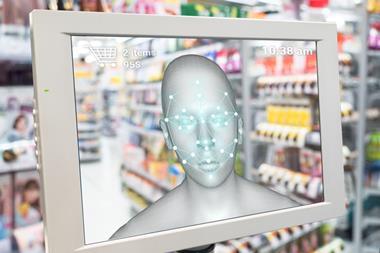
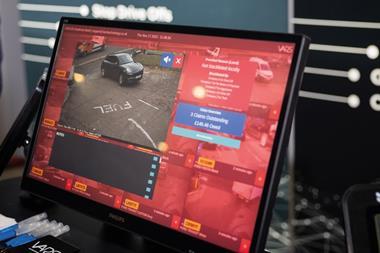
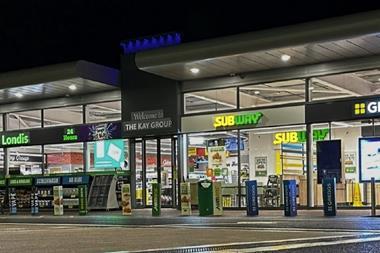

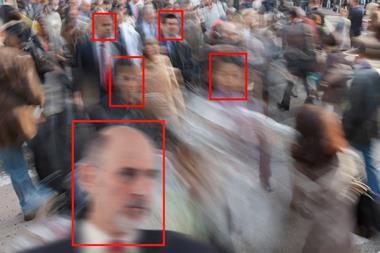
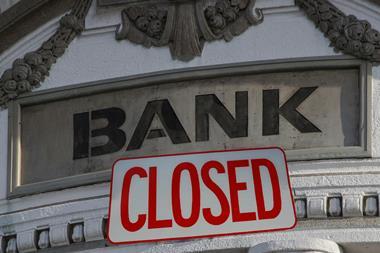
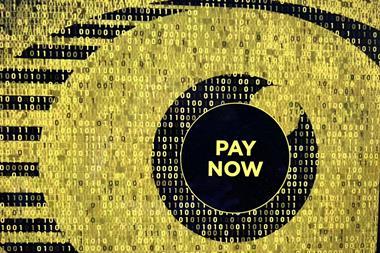

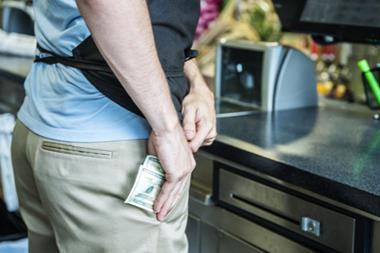
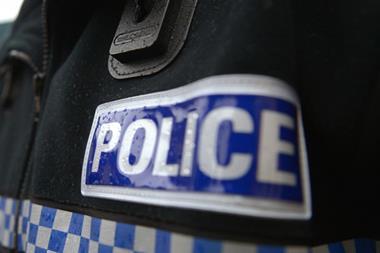
No comments yet